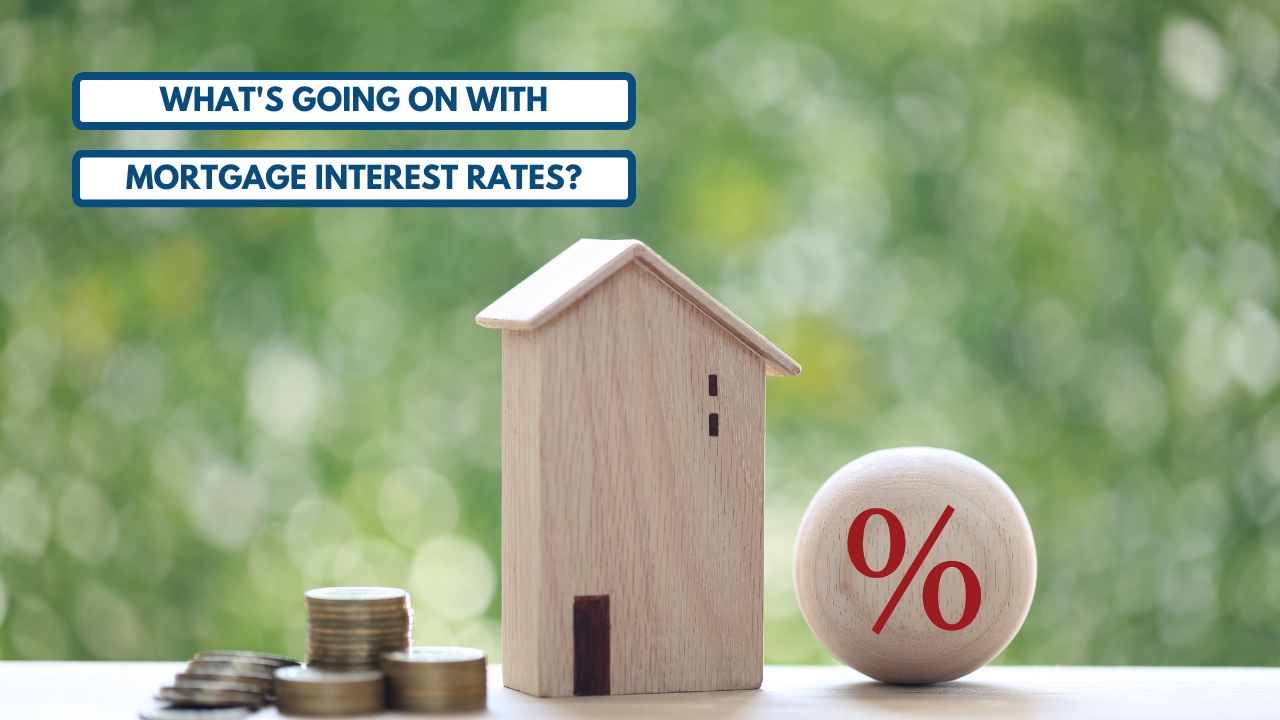What’s Going on with Mortgage Interest Rates?
where are they headed in 2023
Brent provides essential insight on the mechanisms of mortgage interest rates and why they are difficult to predict.
More of a reader? Catch the video transcript below!
So, you’ve heard me go off in other videos and blog posts about these “talking heads” in the industry that try to predict mortgage rates with sensationalized headlines.
You’ve seen it before.
Uh-Oh! Fannie Mae Says that Mortgage Rates Are Going to be 4.5% by Next Year!
Blah, blah, blah. The reason why I rail so hard against these things is that mortgage rates are really hard to predict. Why? When people try to predict mortgage rates, they’re trying to predict human behavior.
Let’s dive into how interest rates are actually determined.
How are mortgage interest rates determined?
It all starts in the bond market. Bond traders trade mortgage-backed securities or mortgage bonds based on what the Federal Reserve is going to do.
And right now, as you’ve all seen in the headlines, the Federal Reserve continues to increase interest rates at a rapid pace - a pace we haven’t seen in decades.
Why is the Fed doing this? The simple answer is that they are trying to create this gyration in the bond market to try and tame inflation and keep us out of a recession at the same time. When the interest rates go up, it pulls money out of the market because people aren’t borrowing money.
Why are interest rates so hard to predict?
The Fed raised their rates based on inflation because that’s the big thing to resolve right now. In November, we actually saw inflation come in below expectations, which caused the bond market to trade in such a fashion that lowered mortgage interest rates.
Why? Because they were trading on the future bet that the federal government was not going to raise rates as quickly as they originally had thought (due to the good inflation numbers).
The bond market is all about trading in future anticipation of what the Fed is going to do.
Is it easy to predict what the Fed is going to do, though? Well, if we look at inflation, I think it’s pretty straightforward that we should start seeing inflation decelerate because prices today aren’t going up nearly as fast as they were last year.
A big reason for this is the increased rates. As the Fed increases interest rates, it’s harder to borrow money; therefore, if big corporations can’t borrow cheap money, then they can’t bring in a labor force to sell their goods and services.
So, ideally, their revenues would go down, their stock prices drop, and then they have to do layoffs in order to balance these things out. This affects the job market, which affects people’s ability to spend money, which affects inflation in a positive way.
Okay, so what actually causes interest rates to rise?
As the Fed has been jacking up interest rates, my friends in the real estate industry (and buyers and sellers, too) have definitely felt the slowdown.
But there are good things happening in the economy, too - the recent jobs report that came out showed 263,000 jobs when we expected 200. Wage growth was 5.1% year over year when we expected less.
Basically, what this means is that the Fed is trying to create an environment to slow down the pace of spending. When they see things like a strong jobs report and high wage increase, they’re going to say, “You know what? If there are lots of jobs to be had and lots of money to be spent, people are going to still be paying high prices for things which will cause inflation to increase.”
So, all of a sudden, the bond market reacts in another way. When these strong numbers come out, the bond market thinks, “Oh, the Fed is going to look at this and raise rates.”
So, what do they do? They trade their bonds in future anticipation of what the Fed is going to do with these economic data pieces.
These are the actual things that make the mortgage rates go up and down with such volatility.
That, my friends, is why they are so hard to predict. We could sit here and say, “Okay, the Fed raised rates, so corporations can’t borrow money, they can’t bring in a workforce, and stock prices are going down. This will lead to layoffs in order to stay profitable and raise their stock price. The layoffs will cause less money supply, fewer jobs, and a decrease in wage growth. Those things are going to combat inflation, right?”
BUT, when the interest rate increases haven’t combatted inflation yet, the fear becomes that the Fed is going to continue their tight monetary policy until inflation tapers off.
There are a million different data points. This past Black Friday and Cyber Monday (2022), we saw some of the biggest spending in history. So, people still have the confidence in their economic situation to go shopping, which is an indicator of inflation for the Fed.
This means they might raise rates faster - or maybe they won’t. These things are impossible to predict because there’s a million different data points they go off of to make their policy decisions.
That’s why it’s always important to make buying decisions at a time when it makes sense for you and your financial situation.
Make sure that whatever moves you make right now are less dependent on interest rates and more dependent on whether or not it is the right time for you and your unique situation.
As always guys, thanks for following along and I’ll see you in the next one!
Brent Edwards (aka Brent the Broker) is a residential real estate agent and Realtor in San Diego, CA who helps clients buy and sell homes in San Diego, California and all surrounding areas. Brent is a highly-recommended Realtor in San Diego by family, friends and past clients. Call Brent today at 619-550-8070 if you have any questions about real estate in San Diego or you'd like to buy or sell a home.





